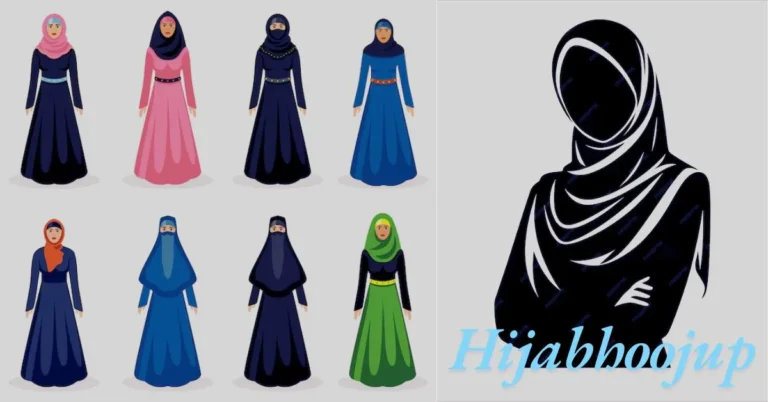The White Clothes Hateko Character:Mystery, and Influence in Pop Culture
The allure of the White Clothes Hateko Character has captivated audiences around the world. This mysterious and compelling figure, often dressed in pristine white attire, has become an iconic element in various forms of media, ranging from anime and manga to video games and cosplay events. The character’s simplicity, combined with layers of complexity, draws people in and resonates on an emotional level. But what is it about this enigmatic character that continues to hold such widespread appeal? In this article, we will delve into the symbolism, popularity, and cultural influence of the White Clothes Hateko Character and how it has left an indelible mark on the worlds of fashion, media, and society.
Understanding the Origins and Symbolism of the White Clothes Hateko Character
The White Clothes Hateko Character is more than just a figure cloaked in an ethereal white ensemble. The choice of white clothing carries significant cultural and symbolic weight across different traditions and societies. From innocence to spirituality, the color white has a multitude of meanings that contribute to the mystique of the character.
The Symbolism of White Clothing
In many cultures, white symbolizes purity, peace, and new beginnings. In Western traditions, white is often associated with weddings, suggesting purity and innocence. Similarly, in African traditions, white garments are worn during ceremonies to symbolize peace and harmony, fostering unity within communities. White clothing is also deeply ingrained in religious practices, such as in Hinduism, where it represents spiritual purification during rituals or prayers.
These cultural and spiritual connotations make the White Clothes Hateko Character not just a mere aesthetic choice, but a powerful representation of ideals such as purity, peace, and tranquility. The character, often portrayed with an air of mystery and elegance, taps into these universal values, making it relatable across cultures.
The Mystery and Enigma of the Hateko Character
Despite the purity and serenity that white typically represents, the Hateko Character often exudes an air of mystery and complexity. This duality — innocence combined with intrigue — is part of what makes the White Clothes Hateko Character so compelling. The character is usually depicted as someone who seems detached from the world around them, yet their presence is deeply impactful. The simplicity of the white attire contrasts with the complex emotional and psychological layers that the character embodies, creating a rich and captivating persona that keeps audiences intrigued.
The White Clothes Hateko Character in Popular Media
The White Clothes Hateko Character has gained widespread popularity in media, especially in anime, manga, and video games, where such characters often play central or pivotal roles in storytelling. Their appearance, marked by the ethereal beauty of white clothing, serves as a visual cue for their deeper significance within the narrative.
White Clothes Hateko in Anime and Manga
In anime and manga, the White Clothes Hateko Character often symbolizes purity, innocence, or even divine power. These characters are frequently portrayed as being untouchable or otherworldly, with their white attire acting as a marker of their spiritual or moral superiority. For example, characters in these genres who wear white might be portrayed as sages, guides, or guardians who have an innate understanding of the world that transcends human limitations.
The visual appeal of these characters is enhanced by their minimalist attire, which is often contrasted with the colorful, vibrant world around them. Their white clothes serve as a visual representation of their purity and nobility, while their enigmatic personalities add layers of mystery and intrigue that keep the audience hooked.
The Role of the White Clothes Hateko Character in Video Games
In the world of video games, the White Clothes Hateko Character often appears as a mentor, guide, or powerful figure who helps the player navigate through challenging situations. The white attire in these games often signifies a character who is both knowledgeable and morally aligned with the player’s goals. For instance, in many role-playing games (RPGs), characters wearing white clothing possess mystical abilities or serve as key figures who provide guidance and assistance to the protagonist.
These characters are typically portrayed as wise and composed, offering players valuable insights and support during their quests. Their role as mentors or guides taps into the deeper psychological desire for reassurance and clarity, making them essential to the player’s journey.
The White Clothes Hateko Character in Cosplay and Fan Communities
The White Clothes Hateko Character has become a popular figure in cosplay events, where fans recreate and embody characters from their favorite media. The allure of dressing up as such a character lies not only in the aesthetic appeal of the white garments but also in the opportunity to portray a figure who represents both purity and mystery.
Cosplayers often put great effort into replicating the intricate details of the white attire associated with the character, such as flowing robes, delicate accessories, and subtle yet striking visual cues. These costumes allow fans to immerse themselves in the world of their favorite media while exploring the deeper meanings that the character embodies. The White Clothes Hateko Character in cosplay has become a symbol of creativity, passion, and personal expression within fan communities.
Positive and Negative Connotations Associated with the White Clothes Hateko Character
While the White Clothes Hateko Character is often viewed in a positive light, representing purity, innocence, and divine guidance, there are also darker interpretations of the character. The color white, in certain contexts, can symbolize em ptiness, sterility, or detachment, which creates a complex emotional response from the audience.
The Positive Connotations: Purity, Innocence, and Tranquility
For many, the White Clothes Hateko Character embodies purity and innocence. Their appearance in pristine white clothes signifies a moral clarity and goodness that is rarely questioned. The character is often seen as someone who brings balance and peace to the world around them, helping others navigate through difficult situations with wisdom and understanding. This association with purity and tranquility makes the character deeply relatable to those seeking solace and spiritual clarity.
The Negative Connotations: Isolation and Detachment
On the other hand, the color white can also have more somber connotations. In some cultures, white is associated with mourning rather than joy. For example, in certain Asian traditions, white is worn during funerals to symbolize the passing of a loved one. In this context, the White Clothes Hateko Character can take on a more isolated or detached persona, representing a sense of emptiness or emotional distance.
This duality — the character’s ability to evoke both warmth and unease — adds to the complexity of the White Clothes Hateko Character, making it a figure that can simultaneously inspire admiration and discomfort. The tension between these conflicting interpretations is what makes the character so fascinating and multi-dimensional.
The Impact of the White Clothes Hateko Character on Fashion and Consumer Behavior
The influence of the White Clothes Hateko Character extends beyond media and entertainment; it has also made its mark on the world of fashion. The character’s pristine white attire has become synonymous with elegance, minimalism, and purity, inspiring designers and consumers alike.
The Influence of the White Clothes Hateko Character on Fashion Trends
The White Clothes Hateko Character has sparked a wave of interest in minimalist fashion. Designers have drawn inspiration from the ethereal and serene qualities of white clothing, incorporating simple yet sophisticated white garments into their collections. This trend is particularly popular among fashion enthusiasts who seek timeless, versatile pieces that embody elegance and purity.
For many consumers, the appeal of wearing white clothing is tied to the character’s association with freshness, clarity, and a sense of peace. This desire for simplicity and purity has led to a growing demand for white clothing in both casual and formal fashion, influencing seasonal trends and retail stock.
Consumer Behavior and the Demand for White Apparel
The popularity of the White Clothes Hateko Character in media has undoubtedly influenced consumer behavior. Many shoppers are drawn to clothing brands that feature minimalist, white-focused collections, reflecting the purity and calmness associated with the character. On social media platforms, influencers often showcase white outfits, driving viral moments and influencing the buying decisions of their followers. The White Clothes Hateko Character has become an aspirational figure, with consumers seeking to emulate the character’s purity and elegance through their fashion choices.
Retailers have responded to this demand by increasing their offerings of white apparel, recognizing that the appeal of the White Clothes Hateko Character extends beyond just media. White clothing is now seen as a symbol of sophistication and simplicity, making it a staple in many consumers’ wardrobes.
Conclusion
The White Clothes Hateko Character is a compelling figure that resonates with audiences across cultures and media. Its origins in symbolism and cultural significance have contributed to its deep emotional appeal, while its role in anime, manga, video games, and cosplay has cemented its place in popular culture. The character embodies a complex blend of purity, mystery, and spirituality, offering both positive and negative connotations that provoke thought and introspection.
As the influence of the White Clothes Hateko Character continues to grow, it remains a powerful symbol of elegance, simplicity, and depth. Whether in fashion or media, the character’s impact on consumer behavior, society, and culture is undeniable. Its enduring appeal lies in its ability to transcend boundaries, evoke emotions, and reflect the shifting cultural conversations of our time.
In the end, the White Clothes Hateko Character is not just a visual icon, but a representation of deeper human values and experiences — a figure that will continue to captivate audiences for generations to come.
FAQS
What is a White Clothes Hateko Character? A White Clothes Hateko Character is a symbolic figure often depicted in white clothing, representing purity, mystery, and spiritual significance.
Why are White Clothes Hateko Characters popular in anime and manga? They symbolize innocence, power, and tranquility, adding an enigmatic aura to their role in the story.
What does the white clothing of the Hateko Character represent? White clothing often symbolizes purity, peace, and moral clarity, but can also suggest emotional detachment or emptiness.
How has the White Clothes Hateko Character influenced fashion? The character’s white attire has inspired minimalist fashion trends, symbolizing elegance and simplicity.
Are White Clothes Hateko Characters always portrayed positively? While often seen as pure and serene, these characters can also evoke feelings of isolation or emotional distance, depending on the context.







